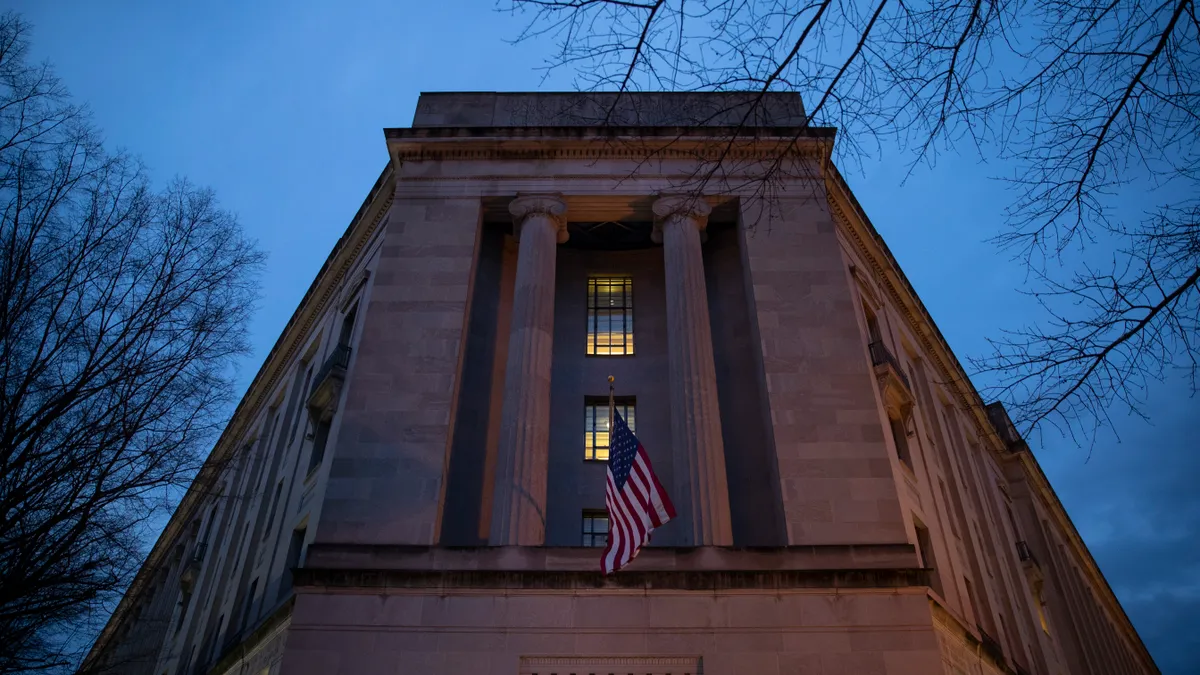Philips is in negotiations with the U.S. Department of Justice about its recall of millions of sleep apnea and ventilator machines, the company said during a second-quarter earnings call.
“We are in confidential discussions. We cannot disclose yet what the terms are and what impact they will have, but we understand that you are very much interested in that and the moment we can share we will share more details around this," Roy Jakobs, chief business leader for Philips’ Connected Care unit, told investors.
Jakobs said the company received a proposed consent decree from the DOJ on July 18. The DOJ subpoenaed Philips earlier this year, seeking information about the recall.
A Philips spokesperson wrote in an emailed statement that given “the early stages of the discussions, that are confidential, we cannot speculate on the outcome.” The DOJ declined to comment.
Philips said in a Monday press release that the DOJ talks come after the U.S. Food and Drug Administration inspected some of its U.S. facilities following the company’s June 2021 recall, which has now grown to more than 5.5 million devices. Philips said it is in talks with the DOJ, on behalf of the FDA, regarding “the terms of a proposed consent decree to resolve the identified issues.”
The company’s stock price fell nearly 7% in Monday morning trading. Wall Street analysts were already weighing in on the DOJ news, arguing that it will likely boost rival ResMed, if the FDA temporarily shuts Philips’ manufacturing.
“The consent decree could lead to production being stopped at [Philips] facilities while it resolves its quality issues, causing further delays in re-entering the market,” Needham analysts wrote in a Monday note. “However, we think that the FDA/DOJ may try to avoid this given the severe flow generator shortage and patient backlog.”
Analysts with KeyBanc Capital Markets wrote that a consent decree “would present additional uncertainty to its ability to fully return to new patient diagnosis.”
In April 2020, Philips announced that the FDA lifted the manufacturing restrictions for the company’s Emergency Care and Resuscitation business, which are part of a consent decree put in place in 2017. The move allowed Philips to begin manufacturing and shipping external defibrillators in the U.S.
Philips said that the earlier consent decree came after regulators found issues with manufacturing sites in Washington and Massachusetts and “addressed quality issues with specific components of Philips defibrillators.”
A spokesperson said in an emailed statement that the 2017 consent decree is still in place.
Philips executives spent a significant portion of Monday’s call talking about its recall of sleep apnea machines and ventilators prompted by concerns about the breakdown of sound-abating foam that possibly exposes users to toxic chemicals.
The company has produced about 3 million repair kits or replacement devices so far, up from 2.2 million last quarter. It expects to have produced or shipped 90% of the replacements by the end of the year, consistent with its expectations last quarter.
This article has been updated to include a statement from the U.S. Department of Justice.














